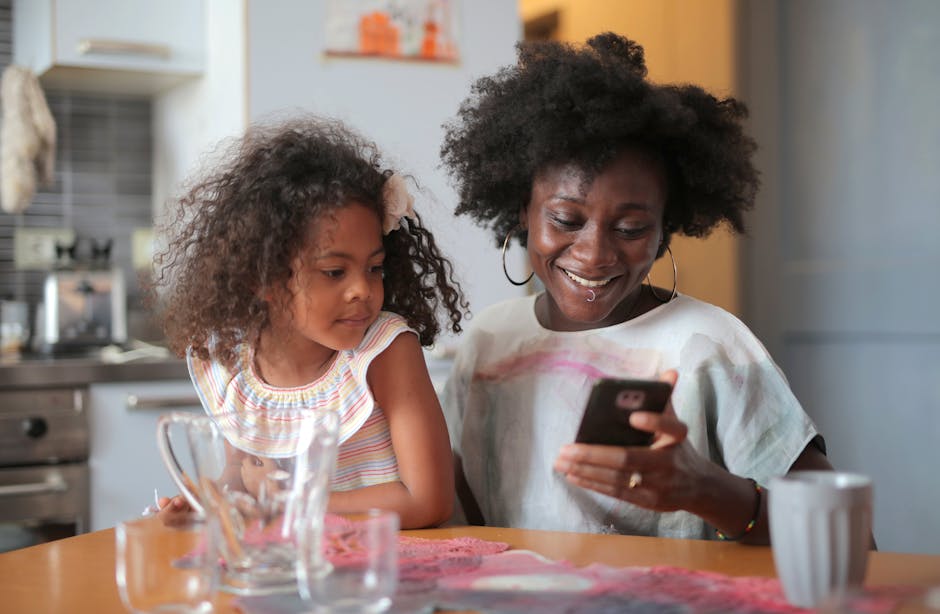Family life, a tapestry woven with intricate threads of love, support, and shared experiences, thrives on the foundation of open communication. A robust exchange of ideas, feelings, and perspectives is not simply a desirable quality; it is a crucial ingredient for building strong, resilient, and fulfilling family bonds. This article will explore the numerous benefits of fostering this vital connection within the familial structure.
A cornerstone of open communication within families lies in the creation of a safe space for expression. Children, in particular, need a platform to articulate their thoughts and emotions without fear of judgment or reprisal. This security cultivates trust, not just between parent and child, but amongst siblings as well. When children feel heard and understood, they are more likely to develop a sense of self-worth and confidence. This, in turn, empowers them to navigate challenges and make informed decisions, both now and in the future. A child who feels comfortable sharing concerns, worries, and even frustrations is a child more likely to seek guidance and support when needed, a pivotal aspect of a strong parent-child relationship.
Open dialogue fosters a deeper understanding between family members. Often, miscommunication stems from assumptions, unspoken expectations, and perceived differences in values. Honest conversation allows family members to clarify their perspectives, address misconceptions, and bridge any existing gaps in understanding. Parents can gain valuable insight into their children’s experiences, challenges, and aspirations. Similarly, children can learn about their parents’ lives, motivations, and past experiences. This shared knowledge fosters empathy, strengthens bonds, and reduces the likelihood of conflict arising from misunderstandings.
Beyond individual growth, open communication nurtures family cohesion and unity. When family members feel comfortable expressing their needs and desires, they can work collaboratively to find solutions that benefit everyone. This collaborative approach can be instrumental in navigating difficult situations like financial pressures, major life transitions, or even disagreements. By understanding each other’s viewpoints, families can reach common ground and make informed decisions that are respectful of everyone’s needs. The collective strength fostered through open dialogue allows for a more supportive and unified familial environment.
Another significant advantage is the development of essential life skills. Active listening, clear articulation, and conflict resolution are crucial life skills that can be learned and honed within the family unit. Open communication provides a practical setting for practicing these skills in a safe, supportive environment. As children engage in respectful dialogue with their parents and siblings, they gain experience in expressing themselves, understanding different perspectives, and finding mutually acceptable solutions. This training equips them with the tools necessary to navigate future relationships and challenges with greater ease and effectiveness.
Furthermore, open communication significantly impacts emotional well-being within the family. It allows for the identification and expression of feelings, both positive and negative. This emotional literacy is vital for managing stress, anxiety, and other emotional challenges. When family members feel comfortable expressing their emotions, it creates a safe space to process difficult feelings and find healthy coping mechanisms. This emotional support system fosters a healthier family climate and cultivates emotional resilience.
Moreover, open communication enhances problem-solving skills. When challenges arise within the family, open dialogue becomes a crucial tool in finding effective solutions. Parents and children can collaborate to address issues constructively, seeking innovative solutions that address the root cause of the problem rather than merely suppressing symptoms. By brainstorming together and exploring different perspectives, families can develop creative and appropriate responses to a wider array of issues.
However, it’s important to acknowledge that fostering open communication isn’t a simple task. Parents must create a secure environment where children feel safe to express themselves openly and honestly. This includes setting clear boundaries, demonstrating active listening skills, and avoiding judgment or criticism. Consistent practice and patience are essential, as developing these habits takes time and effort. Modeling open communication through personal interactions and family discussions is crucial in setting a positive example.
In conclusion, open communication is not merely a desirable trait within families; it is a cornerstone of a healthy and fulfilling family life. By prioritizing honest dialogue, empathy, and active listening, families can cultivate strong bonds, promote emotional well-being, and equip their members with essential life skills. Creating a space where everyone feels heard and respected, regardless of age or background, paves the way for stronger, more resilient, and ultimately happier families. The rewards of open communication extend far beyond the family unit, shaping the individuals who contribute to the broader societal landscape.
